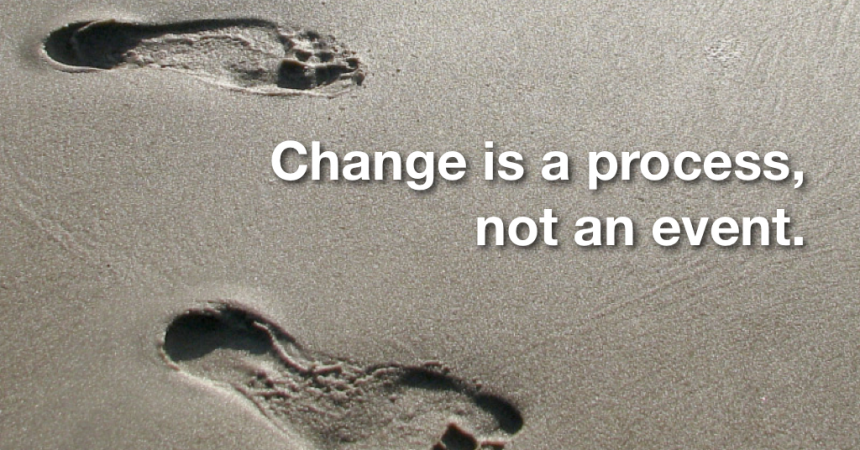The challenge of culture change
We all go through change every day of our lives; our favourite brand of washing powder is removed from the shelves at the supermarket, a new road on our journey to work or senior managers deciding to implement something new. Change is everywhere, change is inevitable and we are all becoming masters at handling the change process. Why then is some change harder to handle than others.
Change is a form of grief; it is ok to find change hard however it is not acceptable if you are still grieving because Opal Fruits are now called Starburst or because the road network has changed and you need to take a left to work instead of right, get over it. The Kübler-Ross model, or the five stages of grief can be linked to the emotions we go through when we are facing change either in the workplace or in our home lives. We cannot escape change: it is needed and it is necessary.
The stages, popularly known by the acronym DABDA, are:
- Denial – The first action is denial. In this stage individuals believe the change will not happen, there is a mistake; “My manger may think we are going to introduce lean but he’ll move on to something else soon, it’s just the flavour of the month.”
- Anger – When the individual recognises they can no longer deny the change they can become angry. The individual becomes frustrated: “Why me? It’s not fair!”; “How can this happen to me?”; “Who is to blame?”; “Why would this happen?”. It is ok to feel angry, it is never okay to act in anger. When we are going through a period of change we must create vent points, breakfast meetings or coffee and conversation we must allow the individual the opportunity to vent but that individual does not have the right to act with anger, there is a difference.
- Bargaining – The third stage involves the hope that the individual can avoid the change: “If you do this, I will…” “How about we do this instead?”
- Depression – “They never listen to us anyway. Why do I bother? All the time I’ve put into this process / job / relationship and they are going to do what they want anyway, what is the point” At this point they have accepted the change is inevitable and they will go along with it but if there is any evidence of the old habits, any management let up, they will be straight back to the way things have always been done. In this stage, the individual has not yet committed entirely to the change or taken ownership.
- Acceptance – “It’s going to be okay.”; I will get used to the idea, how can I help get behind this now?” In this final stage, the individual is accepting of the change they know it is here to stay, they know that it must be made a way of working.
There is no set time to these stages and we all go through them in our own way. The problem is when someone gets stuck in one of the stages. “I liked it better in the old days – 15 years ago when I started, when a previous boss was here..”
To make change successful we must allow everyone to go through these stages but we should help them pass through and not get stuck. The challenge of change is exciting, it is necessary and we must support everyone through the process. When introducing change, the key is communication, we must allow more communication, we must go and ask people to comment and discuss we must communicate at least 10 times more than normal.
Share:

